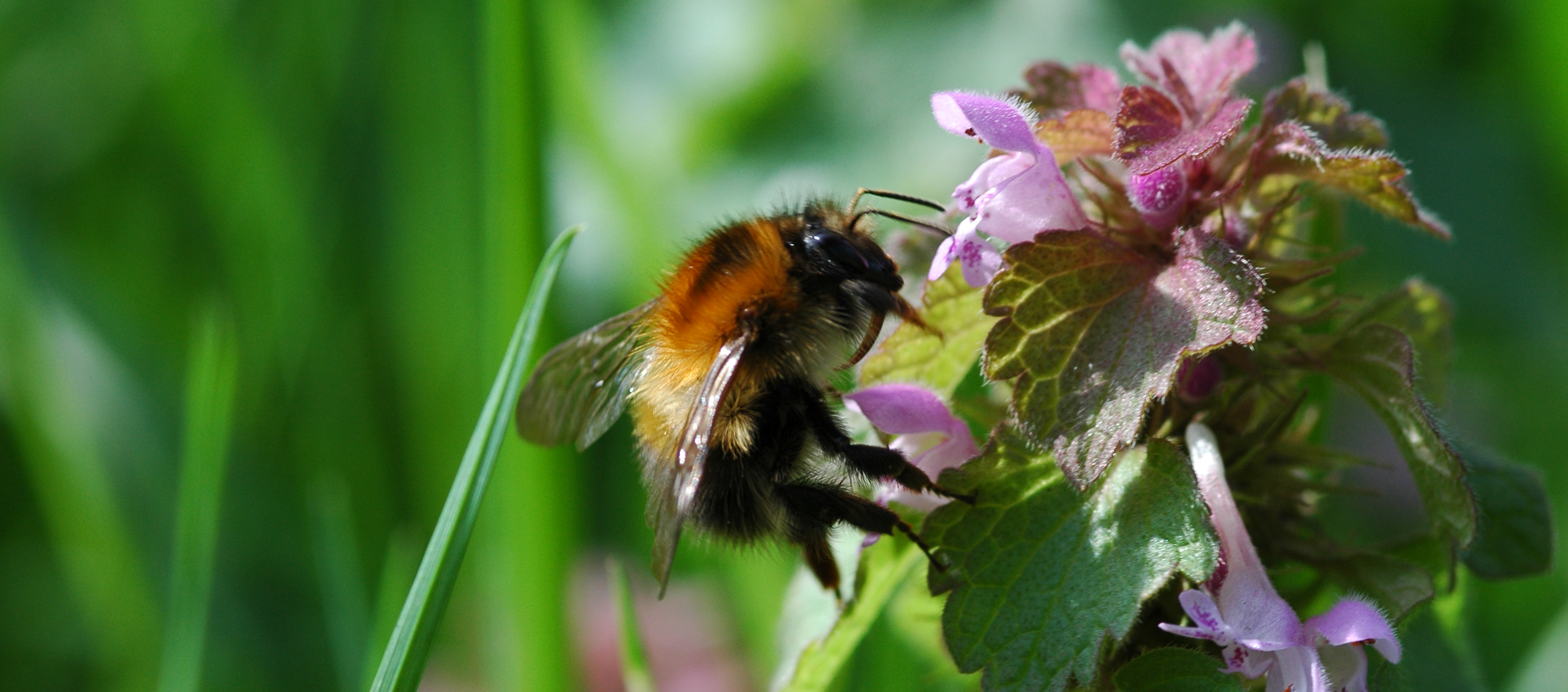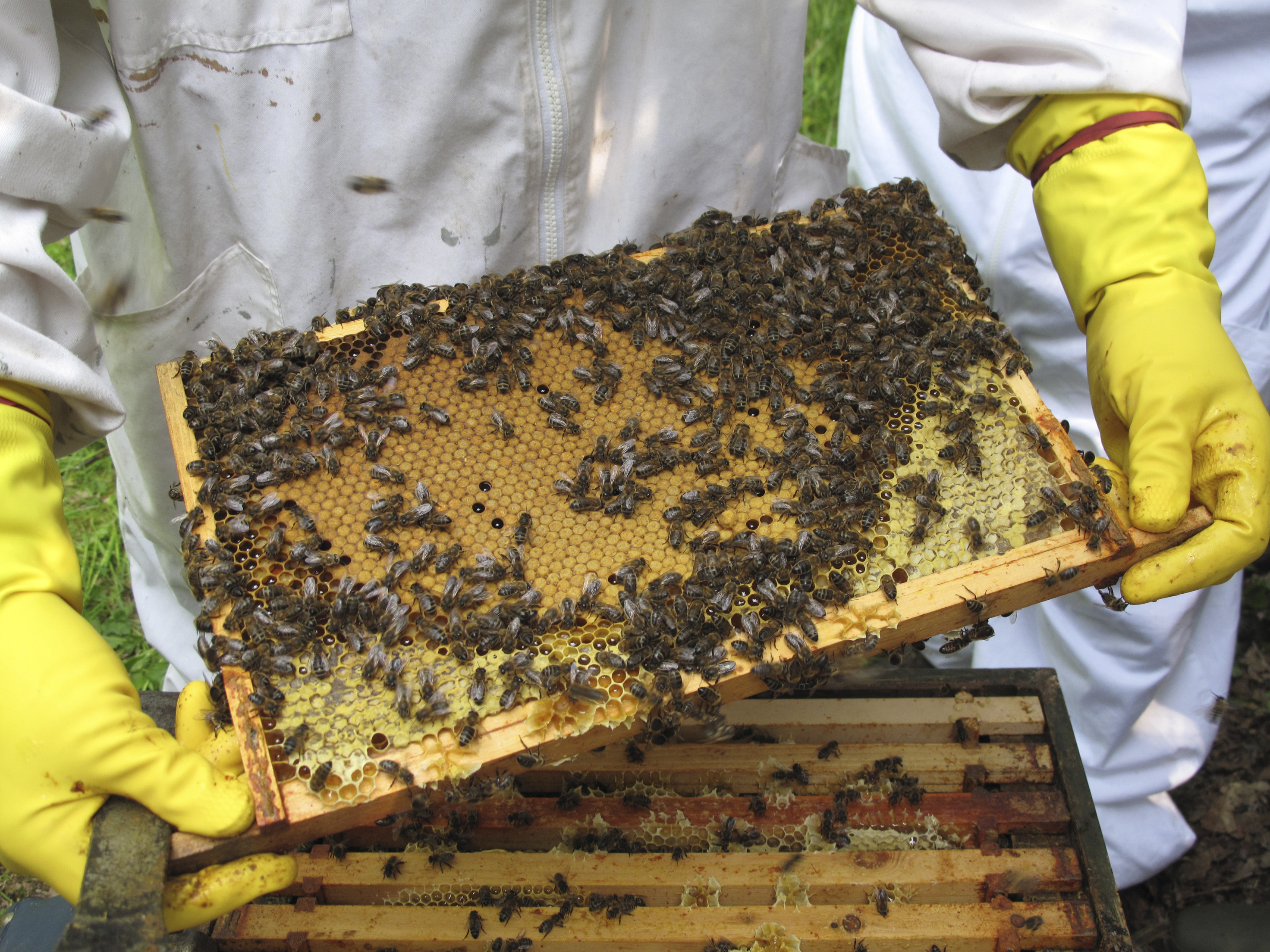
- Soil Association
- Take action
- Grow at home
- Top bee facts

Facts about bees
Our bees are incredible...
As a pollinator, bees drink the sweet nectar of flowers, move between plants and transfer pollen. This fertilises different species so they can produce fruit and seeds.
Pollinators are vital for life on earth. Without them, we wouldn't have potatoes, strawberries, tomatoes, coffee, chocolate or cotton!
But, they're currently in trouble. Their numbers are in real decline, due to a number of factors including disease, habitat loss and the impacts of pesticide use.
Agroecological ways of farming, like organic, create havens for insect species including bees. Did you know that organic farms have on average 30% more biodiversity?
Here are our top 10 favourite facts about bees to get you buzzing:
1. £690 million is the mind-boggling amount that insect pollination is worth to UK crops each year. 76 percent of globally important commercial crops depend on insect pollination. This equates to 1 in 3 mouthfuls of food!
2. The “waggle dance” is used by bees to teach each other about the direction and location of food sources over 6 kilometres away. Known as 'a sat nav for bees', the bees perform precise movements to tell other bees in the hive exactly where they have found their new fantastic food source! Watch the video below to see what the incredible buzzing boogie looks like yourself.
3. Bees have four wings, not two. They actually hook them together to form one big pair when flying and then unhook them when not flying.
4. On average organic farms support 75% more wild bees than non-organic [1]. Organic farming can improve the numbers of bees found in habitats surrounding the farm. This is because organic farmers use fewer pesticides, and have a higher amount of bee-friendly habitats, like wildflower margins.
5. The average hive produces about 11kg of honey during a season. That's the equivalent of about 24 jars. Bees must fly about 55,000 miles just to make one pound of honey (which is less than half a kilo!).

6. 20,000 species of bee live around the world, with over 250 species in the UK. Not all bees produce honey: solitary bees - as their name suggests - like to live on their own. They don't have a queen and they don't live in hives.
7. Some amazing solitary bee species include leafcutter bees and masonry bees. Leafcutter bees construct their homes from thick-stemmed plants, rotted wood and leaves. Masonry bees are found inside naturally-occurring holes in bricks and mortar joints.
8. Bees bounce back! Bees are really responsive to changes in their habitat. For every 10 percent increase in bee-friendly habitats, like those found on organic farms, bee numbers and diversity increases by over a third. In organic grain fields, you can find up to 7 times more bees!

- Bee colonies are a hive of activity. One queen, hundreds of male drones and thousands of female workers make up a single average honeybee hive.
- In the UK, many species of bee are declining, with two bumblebee species already known to be extinct. As a charity, we're working to protect our vital wildlife and promote nature-friendly farming across the country. Find out how you can help protect bees.
-
Feeling the buzz?
Sign up to receive regular emails and become part of the community fighting for nature-friendly future - we'll send you tips for a sustainable life at home, updates about our work, and ways to take action
Sign up
[1] Kennedy et al. (2013) A global quantitative synthesis of local and landscape effects on wild bee pollinators in agroecosystems. Ecology Letters. Vol: 16 pp. 584–599.
In this section...

